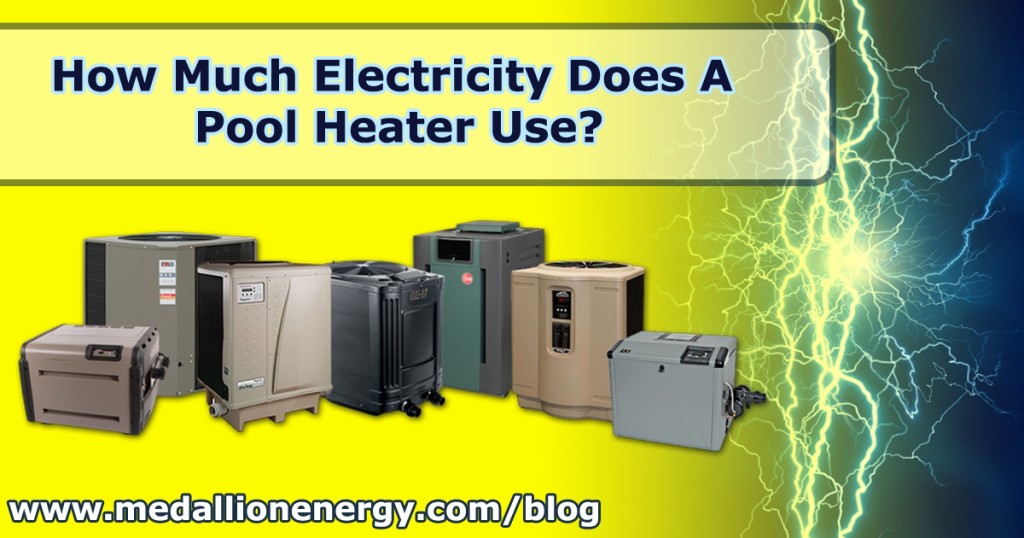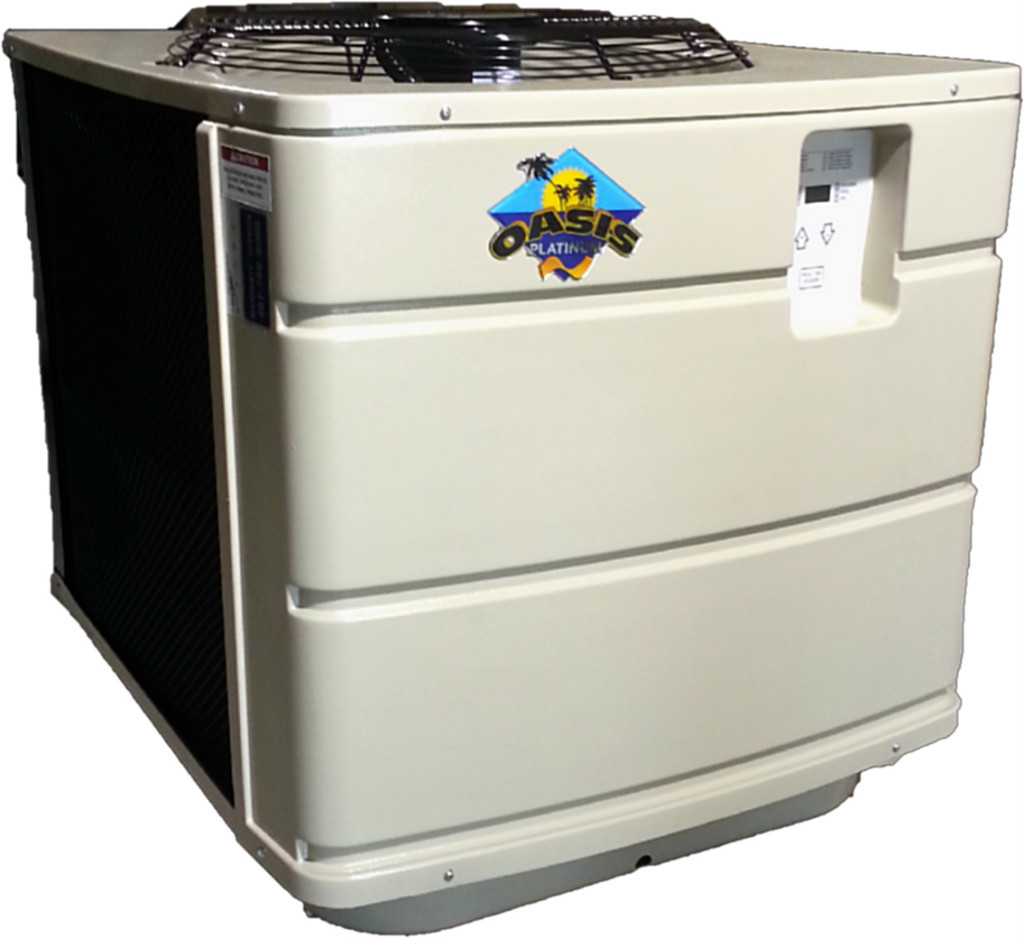If you landed on this page, then chances are you’re here for one of two reasons:
- You’re trying to decide which pool heater is best for you
- You’re doing a bit of research on the pool heater you already have
Figuring out how much energy each type of pool heater uses is a great first step in making your choice.
Why?
Because while some pool heaters offer great heating speed, the trade-off is often high energy costs. But with other kinds of pool heaters, you can find the perfect balance between performance and energy efficiency.
So keep reading to learn about pool heater energy use, and which one will best fit into your budget.
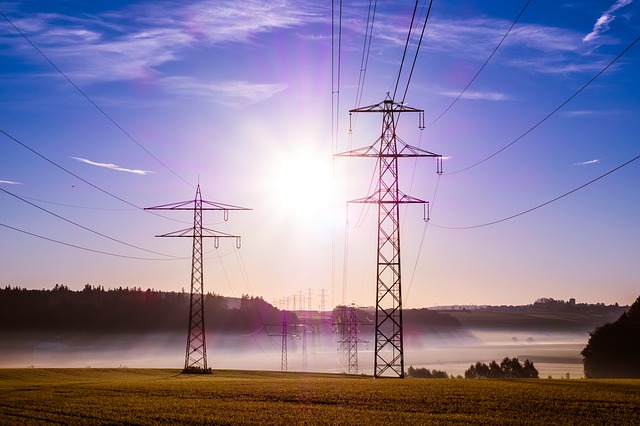

How much electricity does a pool heater use?
It’s one of the essential questions every pool owner seeks an answer for when it’s finally time to heat up the water. And naturally, the answer is entirely dependent on the type of pool heater being used.
The important factors to consider is how much energy a pool heater takes in, and how much heat energy it puts out. For pool heat pumps, the number that measures both of those variables is known as a Coefficient of Performance (COP). Each pool heater uses energy differently to heat to your pool, so each one has a different COP.
We’ll quickly explain all of that and more in the next few sections.
Pool Heat Pumps
Pool heat pumps have an average electrical input ranging from 5-7 kW per hour, with a corresponding output (heat) of 30-40kW. So essentially, they produce a whole lot more energy than they pull, which is a good thing.
Since pool heat pumps use minimal amounts of electricity to harvest and transfer heat, they typically have the highest COPs, ranging between 5.0 and 6.0. And the higher the COP, the better.
Pool Heating Cost
Pool heat pumps are specifically known for their energy efficiency, so expect a lower energy bill of $50-$150 per month (depending on the size of your pool).
Have more questions about pool heat pumps?
[Check out Pool Heat Pumps 101]
Solar Pool Heaters
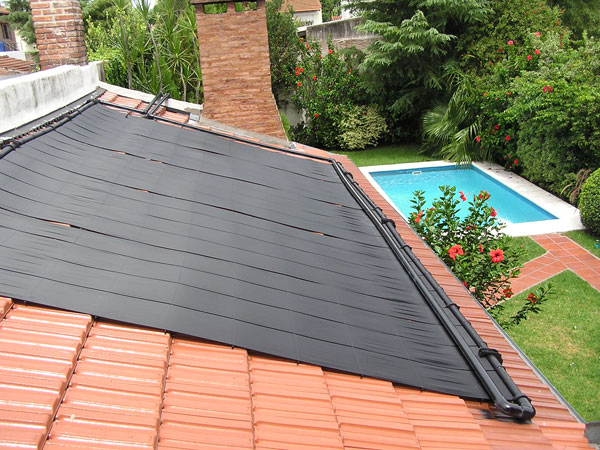

 Solar pool heaters are one of the exceptions to the rules of energy consumption. That’s because they’re completely reliant on solar power. But you do still need to run your pool pump to heat your water.
Solar pool heaters are one of the exceptions to the rules of energy consumption. That’s because they’re completely reliant on solar power. But you do still need to run your pool pump to heat your water.
Also, consider that solar pool heaters are directly affected by the weather. If it’s too cloudy or cold, you won’t get reliable results.
This is why many pool owners use a pool heat pump with a solar heater as backup.
Pool Heating Cost:
Monthly operation costs vary according to pool pump use
Electric Resistance Pool Heaters
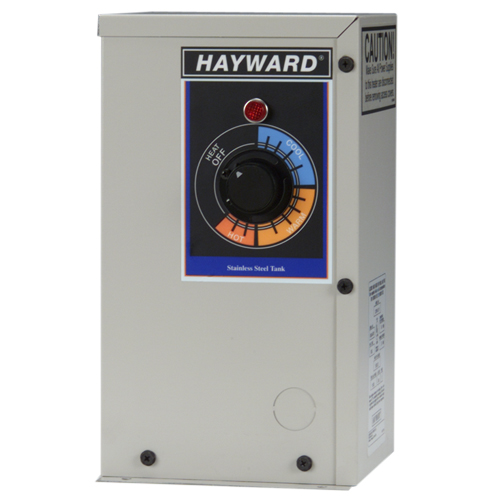

 Electric resistance pool heaters are on the speedy side of pool heaters. But that speed comes at a cost. These heaters consume a heavy amount of electricity since they use resistors to generate heat.
Electric resistance pool heaters are on the speedy side of pool heaters. But that speed comes at a cost. These heaters consume a heavy amount of electricity since they use resistors to generate heat.
Since they use resistors to generate heat, similar to a stovetop, they require a fairly high amount of electricity to keep a pool warm
And with a COP of less than 1.0, they’re often the most expensive pool heater to operate by a large margin. As a refresher, a COP of 1.0 means that a heater produces one unit of heat energy per unit of electricity consumed. And remember, low COPs mean poor energy efficiency, while high COPs mean lower energy costs.
Pool Heating Cost:
Monthly operation costs range anywhere from $400 to $600 per month (depending on the size of your pool).
Gas Pool Heaters
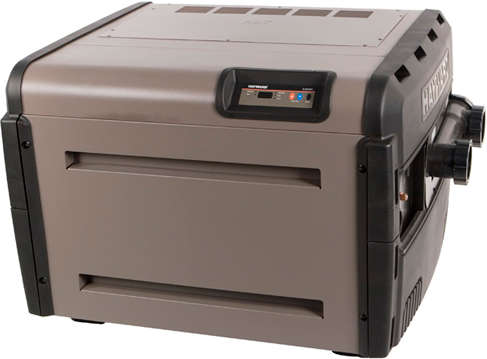

 Gas pool heaters technically shouldn’t be included in this post since they use natural gas (or propane) to heat, and not electricity. However, this information serves as a useful point of reference for prospective pool heater buyers.
Gas pool heaters technically shouldn’t be included in this post since they use natural gas (or propane) to heat, and not electricity. However, this information serves as a useful point of reference for prospective pool heater buyers.
That being said, gas pool heaters are recognized for their unrivaled level of heating speed. They offer the fastest heating speed of all pool heater types.
But naturally, that comes at the cost of respectively high heating bills. Gas pool heaters use gas and as we know, gas isn’t cheap.
Pool Heating Cost:
Expect to pay monthly operation costs between $300 to $500 per month.
Gas pool heater problems?
[Learn how to troubleshoot your gas pool heater]
Closing note
Hopefully, this post helped to give you a better idea of how much electricity pool heaters use to heat your pool. Which pool heater you end up choosing depends entirely on your situation and what matters to you most as the consumer (speed, energy efficiency, or cost.)
If you liked this post, you might also like:

